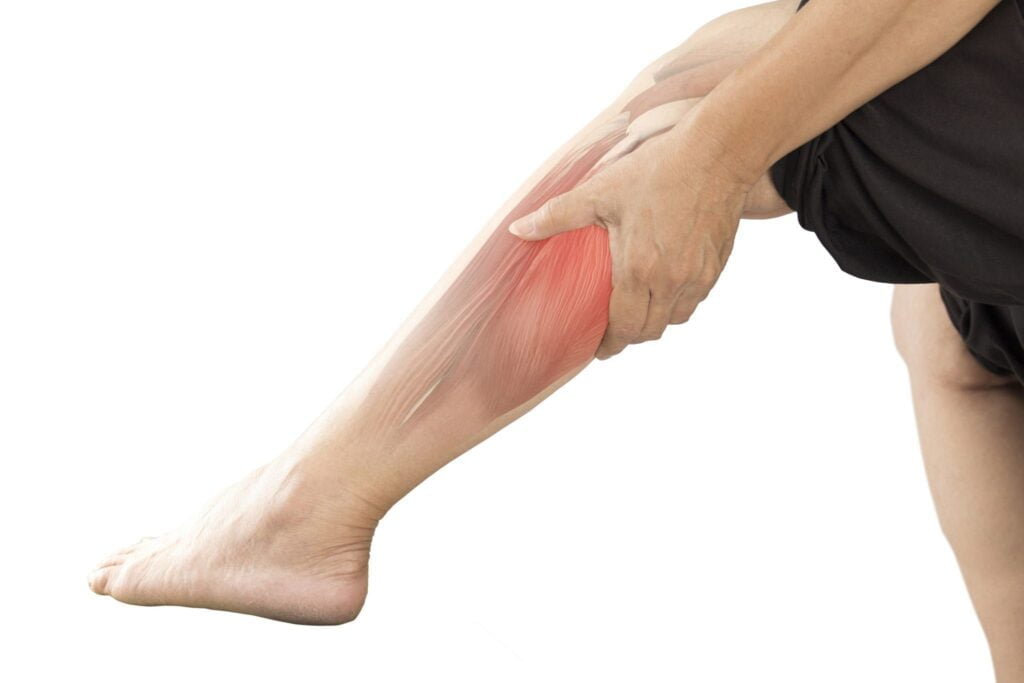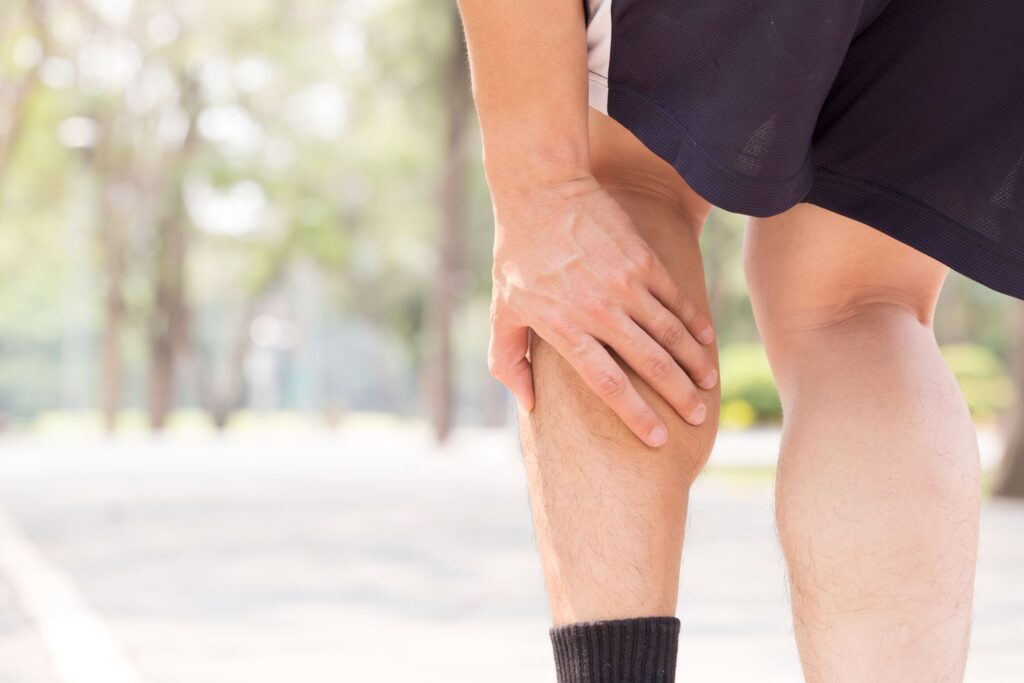Introduction

Hello Guys, Thanks for visiting our website. Today we will solve a usually asked question “Does Muscle Cramp Cause Weight Gain?” Moreover, we will also discuss the points; Does Anxiety Cause Muscle Cramps?, Does Dehydration Cause Muscle Cramps?, Does Magnesium Help With Muscle Cramps? and many more. So let’s dig into the topic and read in brief.
Muscle cramps are relatively short, involuntary contractions of various muscles. These contractions are frequently painful and can affect various muscle groups.
Muscles in the back of your lower leg, the back of your thigh, and the front of your thigh are commonly affected.
You may also feel cramps in your:
- abdominal wall
- arms
- hands
- feet
A cramp’s intense pain can keep you awake at night or make it difficult to walk.
The most common symptom of a muscle cramp is a sudden, sharp pain that lasts from a few seconds to 15 minutes. A cramp may be accompanied by a bulging lump of muscle tissue beneath the skin in some cases.
Does Muscle Cramp Cause Weight Gain?
We are finally discussing our today’s main topic; Does Muscle Cramp Cause Weight Gain? So without wasting our time let’s dive Into the answer.
Here we are taking the example of a muscle cramp that happens after too much exercising or when someone does exercising the first time and resulted in a muscle cramp causing weight gain.
When you begin an exercise program, your body undergoes several changes in the first few months.
A new exercise routine stresses your muscle fibers. This results in micro-tears, also known as micro trauma, as well as some inflammation. You may gain weight as a result of these two conditions in your muscle fibers.
Your body reacts to micro tears and inflammation in two ways, both of which result in temporary water weight gain.
Increased muscle fuel also adds a little weight, At first, the way your body provides energy to your muscles can add weight.
The energy source for your muscles is glycogen, or sugar, which your muscle cells convert to glucose. When you exercise on a regular basis, your body stores more glycogen to fuel your workouts.
Glycogen, which is stored in water, must bind with water in order to fuel the muscle. Water also adds a small amount of weight.
Does Anxiety Cause Muscle Cramps?

Let’s discuss another most asked question ‘Does Anxiety Cause Muscle Cramps?’. So look for the answer;
While most people have had muscle problems as a result of anxiety, cramping is not typically thought of as an anxiety symptom. Nonetheless, it is relatively common. While severe muscle cramps should be treated by a doctor, people who are anxious are prone to muscle spasms and cramping in ways that people who are not anxious are not. If you experience more cramping when you are eager, the two are most likely related.
The causes of muscle cramps are less obvious. The most common and likely causes of this type of cramping are as follows:
- Muscle Rigidity When stressed, the nervous system can put additional pressure on the blood vessels, causing the muscles to contract. Contracture causes muscle tightening and shortening, resulting in stiffness and pain.
- Dehydration Even in the absence of anxiety, dehydration can cause muscle cramping.
- Tension Anxiety causes significant muscle tension, which can result in two issues that cause more cramping. When muscles are tense, they may need to spasm (cramp) to regain some of their energy. Furthermore, tense muscles frequently become tired muscles, and tired muscles are prone to muscle cramping.
Does Dehydration Cause Muscle Cramps?
Our next question is also in minds of many people; ‘Does Dehydration Cause Muscle Cramps?’ So let’s see what the expert says;
Even in the absence of anxiety, dehydration can cause muscle cramping. However, dehydration may be more common if you have anxiety for two reasons.
For starters, some people find that anxiety causes them to urinate and sweat more, which can lead to dehydration faster. Second, anxiety can cause people to feel less thirsty, which leads to them not drinking as much water as they should.
Does Magnesium Help With Muscle Cramps?
Above, we discussed many causes of muscle cramps, and now it turns to treatments. So the question is ‘Does Magnesium Help With Muscle Cramps?’, So let’s see what the expert says.
Muscle cramps can be caused by magnesium deficiency. People frequently require more magnesium. However, clinical studies have shown that magnesium supplements are ineffective for muscle cramps. There are still things you can do to relieve leg cramps, with or without magnesium.
Recommended sources of magnesium
Eating magnesium-rich foods can help you meet your daily magnesium requirements. Your body absorbs approximately 30-40% of the magnesium in your diet.
The following foods have the highest magnesium content per serving:
- almonds (80 mg)
- spinach (78 mg)
- cashews (74 mg)
- peanuts (63 mg)
- soy milk (61 mg)
- shredded wheat cereal (61 mg)
Facts about magnesium deficiency
- As you get older, your body absorbs up to 30% less magnesium from food.
- Smoking and drinking reduce magnesium levels.
- Magnesium levels are lower in processed foods.
- Many common medications, including statins and antacids, inhibit magnesium absorption.
- Magnesium absorption is reduced when vitamin D levels are low.
FAQs
Q. How to stop a muscle cramp in the thigh?
To treat a front thigh (quadriceps) cramp, sit down and try pulling your foot on the affected side up toward your buttock. Apply either heat or cold. On tense or tight muscles, apply a warm towel or heating pad. Taking a warm bath or directing a hot shower stream onto the cramped muscle can also help.
Buy a Heating Pad Now from Amazon
Q. Does appendicitis feel like a muscle cramp?
Sudden, sharp pain on the right side of your lower abdomen is a telltale sign of appendicitis. It could also begin near your belly button and progress to your lower right. At first, the pain may feel like a cramp, and it may worsen when you cough, sneeze or move.
Q. What is better for muscle cramps heat or cold?
Both ice and heat therapy can be useful in treating muscle aches and pains. In general, ice is preferable for newer or acute injuries, whereas heat is preferable for chronic or long-term pain.
Q. How long can a muscle cramp last?
Cramps can last anywhere from a few seconds to ten minutes. Thigh muscle cramps are the most severe. During a cramping episode, the affected muscles tighten and become painful, and the feet and toes become stiff. You may experience pain and tenderness in your legs for several hours after the cramps have passed.
Q. Can an excess of vitamin D cause muscle cramps?
Some people, however, are more sensitive. They complain of digestive problems, as well as muscle pain and weakness. This could be because vitamin D releases too much calcium into the bloodstream. Others have reported muscle cramps after taking large amounts of vitamin D.
Q. Do bananas relieve cramps?
Bananas are commonly thought to be beneficial for leg cramps. They can provide you with potassium, which promotes muscular function and protects your nervous system. This can also be obtained from certain citrus fruits and melons.
Q. What causes my leg cramps at night?
In general, night leg cramps are caused by muscle fatigue and nerve problems. The likelihood of experiencing night leg cramps increases with age. Pregnant women are also more likely to experience night leg cramps.

Good day, and welcome to Fitthour. My name is Shubham Vijay, and I am a certified personal trainer and nutrition coach with 6 years of experience in the fitness industry. At Fitthour, we specialize in types of training, such as strength training, cardio, or HIIT, and our mission is to help clients achieve their fitness goals and improve their overall health.




